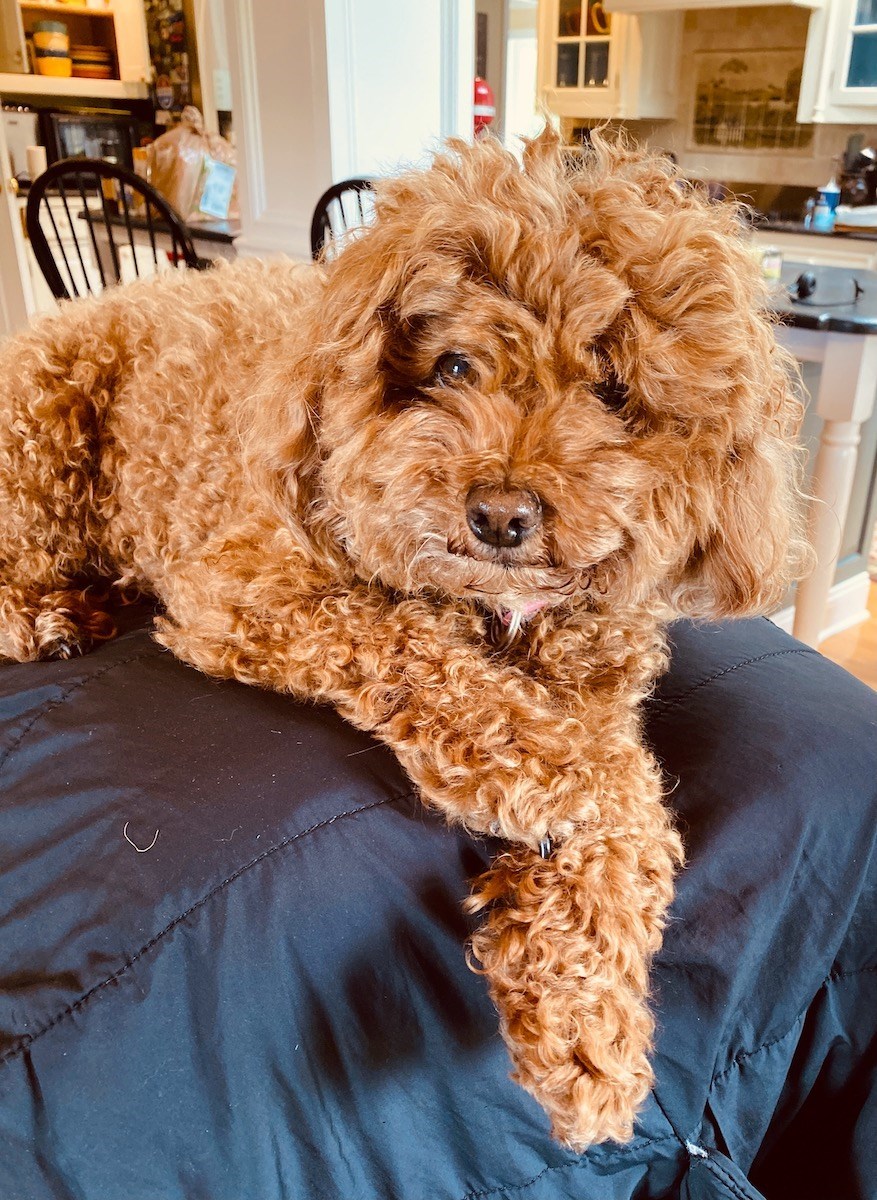A few weeks ago, I got a phone call from my elderly friend. “I had to have my dog put down and I don’t know what to do,” she said. “I’ve never been without a dog in my whole life.”
My friend is in her eighties and lives alone. She has been extremely isolated during the pandemic–only seeing people through her glass door, and having groceries and medications delivered.
Naturally feisty and energetic, she kept herself busy during the pandemic with sewing, crocheting, selling on eBay, trying new recipes and chatting on the phone. In the weeks following the loss of her dog, though, she did not seem herself. When we talked on the phone, she seemed depressed, lonely, and started to bring up the subject of being ready to die soon.
This situation got me thinking about the huge surge of pet adoptions during the pandemic. Breeders are reporting that they have waiting lists for dogs into the middle of 2021 and animal shelters are almost empty. Attempts to explain this dog adoption phenomenon vary: it is a way to keep children stuck at home from being bored when parents have to work; people now have the extra time to tay home and take care of a pet; pets fill the free time of the unemployed.
I wondered what was driving people to adopt so many dogs in the US and what the dogs are doing for them. Why are dogs the solution to social isolation for so many people?
I think the answer is more complicated than just filling a space with an animal, though. Pets help people with anxiety and depression and, of course, during this time of pandemic, physical distancing and a chaotic political scene, more and more people are suffering from anxiety and depression. I think that experience is the reason for the newfound attraction.
Owning a pet has powerful physical and mental health benefits. Studies have found physical evidence of psychological benefits from just cuddling with a dog. Researchers have found that typically, when their subjects pet a dog, their blood pressure goes down, their heart beat decreases, their breathing deepens, and tension in their muscles melt away. These body changes are the physical signs of reduced anxiety and stress.
Humans are also wired to be touched. We have a deep need for physical contact. During the COVID-19 epidemic everyone is advised to not touch people we are not quarantining with. We shouldn’t hug, pat on the back, or shake hands with friends or colleagues. Most of us are not getting the physical contact from other living beings that we are used to. This is more intense for those who live alone and are physical distancing during the COVID outbreak. This population subset is more likely to develop something psychologists have termed “Touch Hunger.”
Touch signals safety and trust, it soothes. Basic warm touch calms cardiovascular stress. It activates the body’s vagus nerve, which is a part of our compassionate response, and a simple touch can trigger release of oxytocin, a feel-good hormone. Dogs crave attention and love to be caressed and cuddled. They will even helpfully remind you to interact with them by nudging you, putting their cold nose in your hand or touching your arm with a paw. It is a symbiotic relationship.
Dogs also provide routine and encourage movement for their owners. In isolation, the days often run together and many people are falling into the rut of going to bed late and sleeping away the day, staying in their pajamas all day and eating at all hours. instead of having meal times. Having a pet can help create a healthy routine. Dogs need to be walked several times a day. You can’t walk them in your pajamas: they need to be fed, given water, brushed and played with. The need to care for another living being and the desire to keep it healthy and happy can build a routine into an otherwise uncomfortably flexible pandemic existence.
Dogs are excellent listeners and try to figure out what we are saying (probably hoping we will be preparing to give them treats or take them for a walk, but it’s all good)! My elderly friend confided that the worst thing about not having a dog in the house was having no one to talk to. She’s not wrong. Talking to a pet can be good for your mental health. Talking to your dog can help you get what you are thinking, or worrying about, out into the open and can help you process worries and solve problems. Dogs are not judging; they listen to you. Talking about a situation out loud to an attentive non-judgmental canine friend can often help you come to a solution.
Leading canine researcher Stanley Coren, PhD, found that dogs have about the same mental capacity as a 2-year-old child. His research shows that the average dog can learn about 165 words. Because they are social animals, dogs are very skilled at reading emotions. Dogs’ ability to bond and communicate with humans is unique. No other animal possesses this ability as strongly. Dogs can identify our emotions and integrate the sound of our voices and our facial expression. Another ability that is distinctive to dogs is that they read our emotions by integrating our facial expressions, the tone of our voice and our physical gestures. That is pretty sophisticated.
My elderly friend and I finally found a dog, thanks to a Facebook friend who shared info about a dog who was given to a shelter and was about to have his information posted. My elderly friend had applied to adopt 14 rescued dogs unsuccessfully before then because they were claimed by others. She sent in an application and went for an interview immediately. She was able to adopt an adorable, lively poodle mix and she has been on cloud nine since. She says this little dog is perfect for her, the most intelligent dog she has ever had. She is delighted that he loves to jump up on her lap whenever she sits down. She sings his praises because he knows her schedule and doesn’t wake her up in the morning before her usual waking time. He sleeps in a laundry basket near her bed until she wakes up. I was relieved when she told me that she can’t die now, because she has to stay healthy and take care of her beloved pet. I think this little white poodle saved her life!
Submitted by Lucia Wallis Smith, who is a Licensed Professional Counselor specializing in Anxiety. Check out her website clearmindcounselingnj.com or email her at [email protected]




